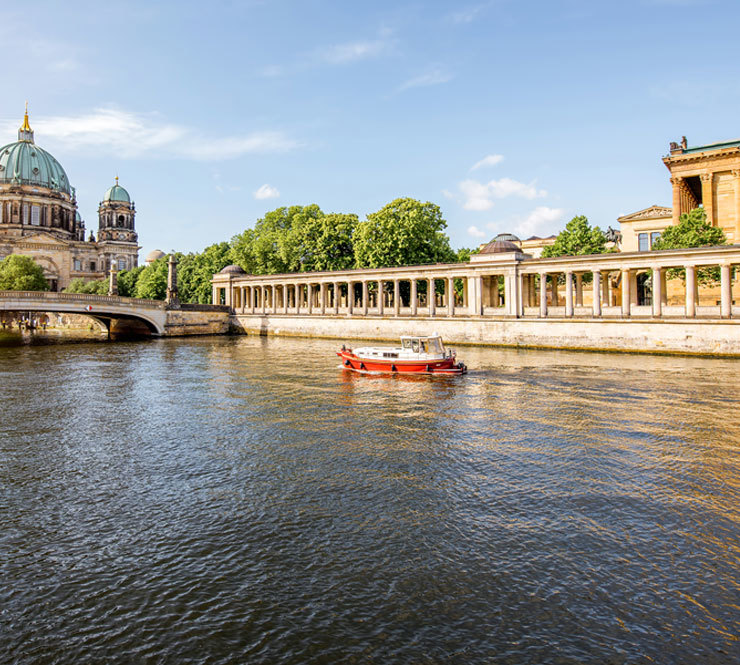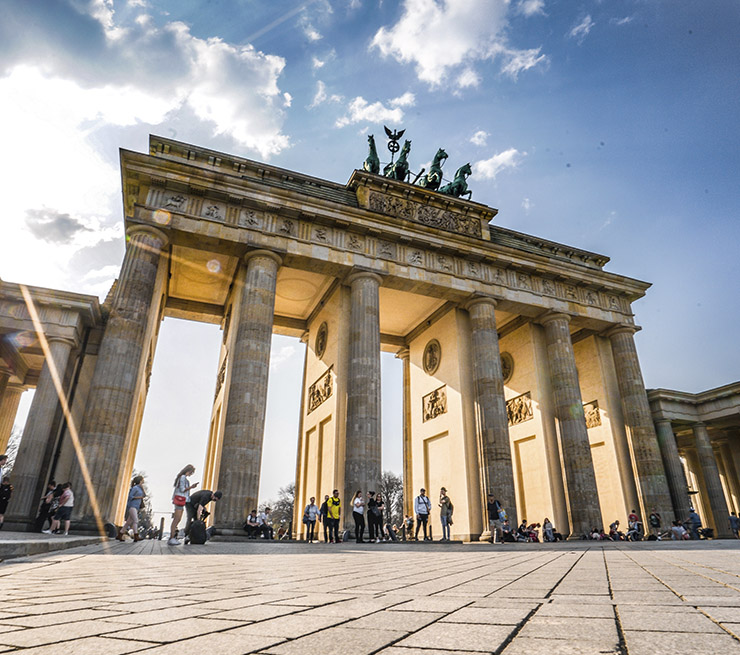COURSE DETAIL
This course introduces students to the grand challenges of today’s world (for example planetary boundaries) and the necessity for a “Great Transformation” toward a sustainable development of our societies. Students examine the systemic characters and the complex dynamics in today’s societies, including the individual, organizational, community, regional, national and international levels and their relations and interactions.
One of the major questions explored in the course is which social actors contribute to a transformation towards sustainable development and how - and in what way this happens, which inertias and obstacles stand in the way and could be overcome? What has the German government done, what is the German parliament doing, what is the function of business, sciences or civil society organizations – what happens in Berlin? The course considers the broadest possible spectrum of approaches, strategies and actors for a reflected change towards a Great Transformation in an exemplary manner, as well as thinking theory and practice together (in the sense of transformative science and shaping the future). Students examine the different national, regional and cultural systems and backgrounds for all this. Specific examples which are part of the pathway to sustainability are green taxes, renewable energy projects, cooperative housing, car-free streets and places, urban farming, or even eco-villages.
Additional topics include concepts like path dependency (path management), Multi-Level Perspective – MLP, social innovation, models of change, change agents, MAP – movement action plan. The course includes relevant sociological theories, i.e. social systems theory, practice theory and real utopias. These will give insights into societal factors for stability as well as for change.
COURSE DETAIL
This course introduces students to the methodology and major concepts and theories in the Political Science field of comparative politics. Students learn how to analyze and assess similarities and differences among political systems. Students study and compare the domestic politics, political institutions and conflicts of various countries and through time within single countries. Students learn how to identify and explain political similarities and differences among countries, in the process gaining a critical perspective on politics in the U.S.
COURSE DETAIL
The aim of this seminar is to enact the reality of creating an artwork when elements of the agency are taken out of one's hands and are mediated by an institution, budget and timescale. Students are asked to make an artwork in response to a fictitious curator‘s proposal for an exhibition. They are given details of why the curator has picked them and the themes the curator is working with, along with a time scale and budget. The instructor guides them through the process of responding to the curator’s emails along with making their work at the same time as keeping the curators concept and intentions in their head. The course is conceived in line with the art history department's mission of advancing the study of art history and one's understanding of art by way of an active engagement with artistic practice. The course therefore offers students of art history and related disciplines the rare opportunity of assuming the perspective of the artist. Complementing this approach, students are also offered the alternative option of taking on the role of curator.
COURSE DETAIL
This course uses Berlin as a case study to analyze the origins of hate discourses and the so-called "gender ideology" by integrating key concepts of queer theory and gender studies into the discussions to explore the cultural politics of emotions and affect. Questions posed include why has Berlin become one of the foremost LGBTQIA+ capitals in the world? What social and political challenges does the Berlin queer community face, such as the emergence of a new wave of far-right movements? Students examine the evolution of a contemporary, multicultural, and artistic queer Berlin. Topics include the 1920s, the rise of fascism and Nazi atrocities, the division of Germany, and its different approaches to sexual liberation movements. The course considers the impact of the HIV/AIDS pandemic and the Reunification of Germany and the 1990s to understand today's vast and diverse queer scene. It explores recent theoretical advancements in critical queer and gender studies, complemented by workshops and cultural excursions, covering topics such as body politics, queer diaspora and migration, and critical solidarity.
COURSE DETAIL
This course explores the complex historical and contemporary dynamics of German colonialism, anti-colonial resistance movements, and the impact of colonialism on present-day German society. Divided into four themes that intersect throughout the classes, the course provides a comprehensive understanding of the German colonial past, anti-colonial struggles in Berlin, contemporary Berlin as a site of colonial heritage, and the emergence of post-colonial and decolonial movements in the city. The first main theme is the German colonial era, which examines key historical events, colonial practices, and the territories under German control. The course explores Berlin as a physical and symbolic space that reflects the remnants of German colonialism and consider how these remnants shape the city's identity. The second focuses on resistance movements against colonization. It studies the diverse strategies and initiatives employed by individuals and communities who fought against German colonialism both in the colonies and in Berlin and the capital of the German empire. The third theme investigates the effects of colonialism on contemporary German society. It examines how colonial legacies continue to shape social, political, and cultural structures in Germany today. Topics include the influence of colonialism on immigration policies, racial dynamics, cultural heritage, and the representation of marginalized communities. The fourth theme engages with postcolonial and decolonial contemporary movements. It critically examines different theoretical frameworks and approaches used to deconstruct colonial power structures, challenge Eurocentric narratives, and envision alternative futures. It also explores the global context of decolonial movements and their relevance to Germany and Berlin specifically.
COURSE DETAIL
This course provides an overview of important international conflicts of the present time, their causes, main agents, and recent developments. Students investigate a number of case studies, identifying and learning in detail about different areas of international controversy, and study models of international cooperation. Students analyze a variety of current conflicts by diagnosing the conflict, providing an outlook for the medium-term future, and proposing solutions. Classroom content is supplemented and enhanced by debate meetings with experts and practitioners from different organizations and institutions. The course addresses the following and other questions: In which policy domains can one find contemporary / future international controversies? What are the ways in which these controversies are diffused and settled? What are existing obstacles to the resolution and settlement of international conflicts? What major multilateral forums exist? Is global governance a realistic and desirable goal? What could possible forms look like?
COURSE DETAIL
This course examines key concepts and debates in contemporary international business, covering a range of topics including a critical deconstruction of the term globalization; the national and supranational alignment and divergence of political, economic, and legal systems; the complexities and nuances of international trade, including import, export, and countertrade, It includes foreign direct investment patterns and strategies; international finance and accounting; organizational structures for international businesses; market entry; global production; and, global complications in human resource management.
COURSE DETAIL
By critically examining the influence of science and technology on the governance of human and non-human communities, this course equips students with theoretical tools to analyze nature politics and reflective skills about the role of science and technology in the world they live in. Topics include public and political problems such as examining the concerns about environmental degradation, extractivism, climate change, development infrastructure, and land distribution. Students examine the framework of (Western) scientific knowledge as objective and truth-revealing, and technological innovations as horizons for progress. “Rendering Nature Technical” explores: (i) how scientific and technological practices shape nature (its elements, dynamics, relationalities), (ii) how nature governance takes place in the interplay of science, technology, and society, (iii) the co-constitution of socio-cultural, political and economic contexts, and, science and technology, (iv) the effects of these dynamics on power, contestation and resistance in distributional conflicts.
Pagination
- Previous page
- Page 6
- Next page


